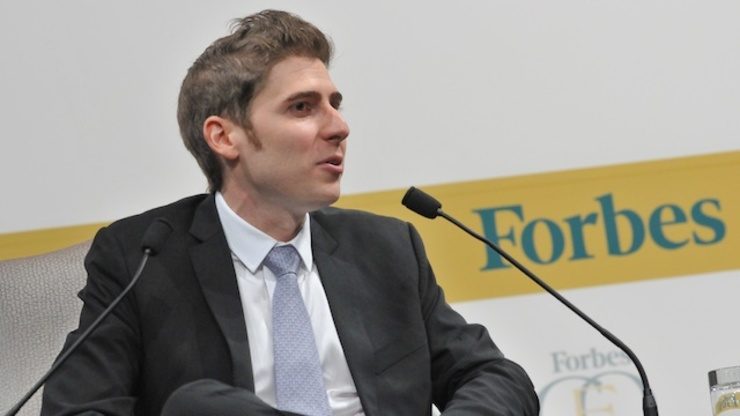SUMMARY
This is AI generated summarization, which may have errors. For context, always refer to the full article.

SINGAPORE – Facebook co-founder Eduardo Saverin said that if he were at Harvard today, he would probably still be an entrepreneur but unlikely to be as successful.
Speaking at the Forbes Global CEO Conference at a panel on disruptive innovations, Saverin said innovation has changed over the years, but he was at the “right place, at the right time” when he and Mark Zuckerberg thought of Facebook. He said timing is essential to success.
“[If I were still at Harvard] I would end up, just as before, an entrepreneur,” he said on Wednesday, October 29. “Success is about being at the right place at the right time. I’ll never take credit for what happens but I’ll go along for the ride.”
Today however, innovation is starkly different from what it used to be. Here are Saverin’s 3 observations on how innovation has changed since Facebook was first conceived.
1. Inclusive innovation process
Saverin said presently, people are deeply involved in the innovation process.
The biggest change, he said, is that people are now right in the center of innovation, giving the people power they never had before.
“I think what’s happened over time is you ended up being in an environment where there are a lot more people part of the innovation process,” he said.
“Like crowdsourcing, for example, capital funding is a lot more accessible, not just for the elite few or the big corporations, a lot of people are actually embarking on a journey to innovate.”
2. More industries innovating
Additionally, Saverin said countless industries have been forced to innovate due to technological advances in the past decade.
“You also have innovation reflecting a larger swathe of industries and this is because of the mobile devices that we have and platforms like social networks that came to be which allow for very quick distribution,” he said.
“You don’t need to buy a new hardware device for every single function. If you want to book a hotel room or hail a cab or do anything else, it can be done with one single device so a lot of industries are getting impacted.”
Innovation among industries, he said, depends on how individuals view new innovation. Twitter, for example can be viewed simply as a platform to share messages, but it can also arguably be seen as a platform that has “completely disrupted media and has completely reversed the central power from top-down to the masses that can speak to the masses.”
3. More people benefitting
An important result of industries innovating, Saverin said, is “the breadth and the number of people benefitting from these innovations is growing exponentially.”
Because of technology, Saverin said, the adoption rate of innovations are so much steeper than it used to be with electricity taking 30 years to get about 10% adoption and 25 years for the telephone. In contrast, the tablet took 5 years to be widely adopted.
“So the adoption curve is a lot more steep. And this can lead to real innovation such as democracy, you can create and push through innovations like Arab springs, emergency responses,” he said.
“That’s an example of real impact of technologies that widespread and fundamental to our lives… they’ve really impacted real-world industries and empowered people and put them in the center in the last few years.” – Rappler.com
Add a comment
How does this make you feel?
There are no comments yet. Add your comment to start the conversation.